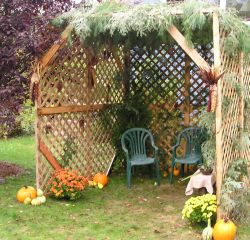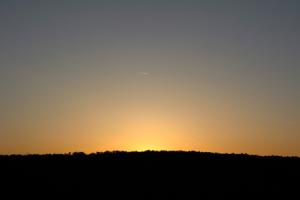You are here
Blogs
Touring the Ironbound: Environmental Justice Made Real
 I was on a chartered bus with about 40 other people—Christians, Jews, Muslims, Unitarian Universalists, one Buddhist, and one Wiccan priest. We were united in being people of faith, in being mostly white and middle class, and in touring part of Newark, New Jersey as part of the Environmental Justice retreat of GreenFaith’s Fellowship Program.
I was on a chartered bus with about 40 other people—Christians, Jews, Muslims, Unitarian Universalists, one Buddhist, and one Wiccan priest. We were united in being people of faith, in being mostly white and middle class, and in touring part of Newark, New Jersey as part of the Environmental Justice retreat of GreenFaith’s Fellowship Program.
I already knew that low-income communities and communities of color are disproportionately affected by environmental degradation; if there are toxic emissions or pollution to be found in a community, it’s most likely on the “other side of the tracks,” where poverty and the legacy of racism and discrimination combine to form communities that have little leverage in the fight against larger corporate interests. And so it is in the Ironbound, a historically immigrant community in Newark, so-named because it is bounded on three sides by railroad tracks—and on the fourth side, by Newark Airport.
About Sukkot and Our Work to Care for Creation
 At the end of each month's interfaith environmental conference call, we close our time together with a prayer. Often, I'll ask a clergy-person to lead us. Today, though, the theme of this month's call--"greening" the holidays--had me thinking about the current Jewish holiday of Sukkot, which ends today at sundown. What follows are the words I offered at the close of today's call.
At the end of each month's interfaith environmental conference call, we close our time together with a prayer. Often, I'll ask a clergy-person to lead us. Today, though, the theme of this month's call--"greening" the holidays--had me thinking about the current Jewish holiday of Sukkot, which ends today at sundown. What follows are the words I offered at the close of today's call.
********
Today is the last day of the Jewish festival of Sukkot, during which we are commanded to go outside and sit in temporary dwellings, open to the elements. This act of moving outside for seven days is a reminder of our impermanence and fragility, our connection to the natural world, and our responsibility to be engaged with and active in the larger world, outside our comfort zone. All of that might sound pretty heavy.
But during this festival of Sukkot, we are also commanded to be happy and joyful!
My Testimony at Austin's Keystone XL Hearing
Separation of Church and State? Why Religious Voices Matter.
We Will Not Save What We Do Not Love

Last week when I saw this article about nearly 1/3 of the Chesapeake Bay being a “dead zone” this year, it felt like someone punched me in the gut. I made some kind of audible groaning sound and reeled—as much as that’s possible while sitting in a chair at the kitchen table. For this native Texan who’s lived in the Lone Star State her whole life (except for a nine-month stint in New Orleans when I was five) to be so moved by environmental trauma in another part of the country might seem odd. I mean, there are environmental traumas happening every day all around the world. Why does this one make me want to curl into a little ball of wounded sorrow?
Interfaith Tips: Telling Our Stories
Going to the park, to work, to the grocery store or pretty much anywhere today is venturing out into a religiously pluralistic setting. In all of those places, there are bound to be people who profess different religious beliefs than you do, or who profess no beliefs at all. In many of these settings, we keep quiet about our religious views so as not to offend or distance ourselves from others. I wonder, though, if this leaves us saying nothing real at all, and sometimes increases the distance between us rather than bringing us together in actual relationship.
Exploring Houses of Worship
Visiting a Hindu Temple: Reflections on Unity, Diversity and Some Really Good Food
Are Canada's Tar Sands Coming Soon to a Refinery Near You?
It was a normal Tuesday evening—husband working late, kids outside playing, me trying to figure out what to make for dinner—when the phone rang. And at first, it seemed like a normal phone call: just an automated survey.

